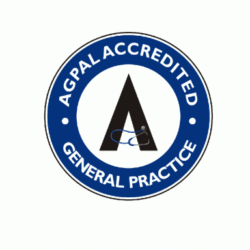Preconception and post-conception checks are essential for ensuring a healthy pregnancy and baby. Here’s an overview of what each entails:
Preconception Checks:
- Medical History Review: The healthcare provider will review both partners’ medical histories, including any pre-existing conditions, medications, and previous pregnancies.
- Genetic Screening: Screening for genetic disorders or hereditary conditions can help identify potential risks for the baby. This may involve blood tests or genetic counseling.
- Nutritional Assessment: Ensuring adequate nutrition, including folic acid intake, is crucial for a healthy pregnancy. The healthcare provider may recommend dietary changes or supplements.
- Immunizations: Checking immunization status is essential to protect both the mother and baby from vaccine-preventable diseases. Vaccinations such as rubella and varicella may be recommended if immunity is not confirmed.
- Infectious Disease Screening: Screening for sexually transmitted infections (STIs) and other infectious diseases can help prevent transmission to the baby during pregnancy.
- Lifestyle Assessment: Discussing lifestyle factors such as smoking, alcohol consumption, and drug use is essential. Making healthy lifestyle choices before conception can improve pregnancy outcomes.
- Medication Review: Reviewing medications, including over-the-counter and herbal supplements, is crucial to ensure they are safe to continue during pregnancy or if any adjustments are needed.
- Weight Management: Achieving a healthy weight before conception can reduce the risk of complications during pregnancy. The healthcare provider may provide guidance on healthy weight management strategies.
Post-conception Checks (Prenatal Care):
- Confirmation of Pregnancy: Confirming the pregnancy through a urine or blood test and scheduling the first prenatal appointment.
- Prenatal Screening Tests: Screening tests, including blood tests and ultrasounds, are performed to assess the health of the mother and baby and identify any potential complications.
- Nutritional Counseling: Continuing to focus on adequate nutrition, including prenatal vitamins and a balanced diet rich in essential nutrients.
- Monitoring: Regular prenatal visits are scheduled to monitor the progress of the pregnancy, including fetal growth and development, maternal health, and any signs of complications.
- Education and Support: Providing education and support on topics such as prenatal care, childbirth preparation, breastfeeding, and newborn care.
- Screening for Gestational Diabetes: Screening for gestational diabetes typically occurs between 24 and 28 weeks of pregnancy to identify and manage this condition if present.
- Preparation for Labor and Delivery: Discussing birth preferences, pain management options, and preparing for labor and delivery.
Both preconception and post-conception checks are important components of comprehensive prenatal care and can help optimize the health and well-being of both the mother and baby throughout pregnancy and beyond.




